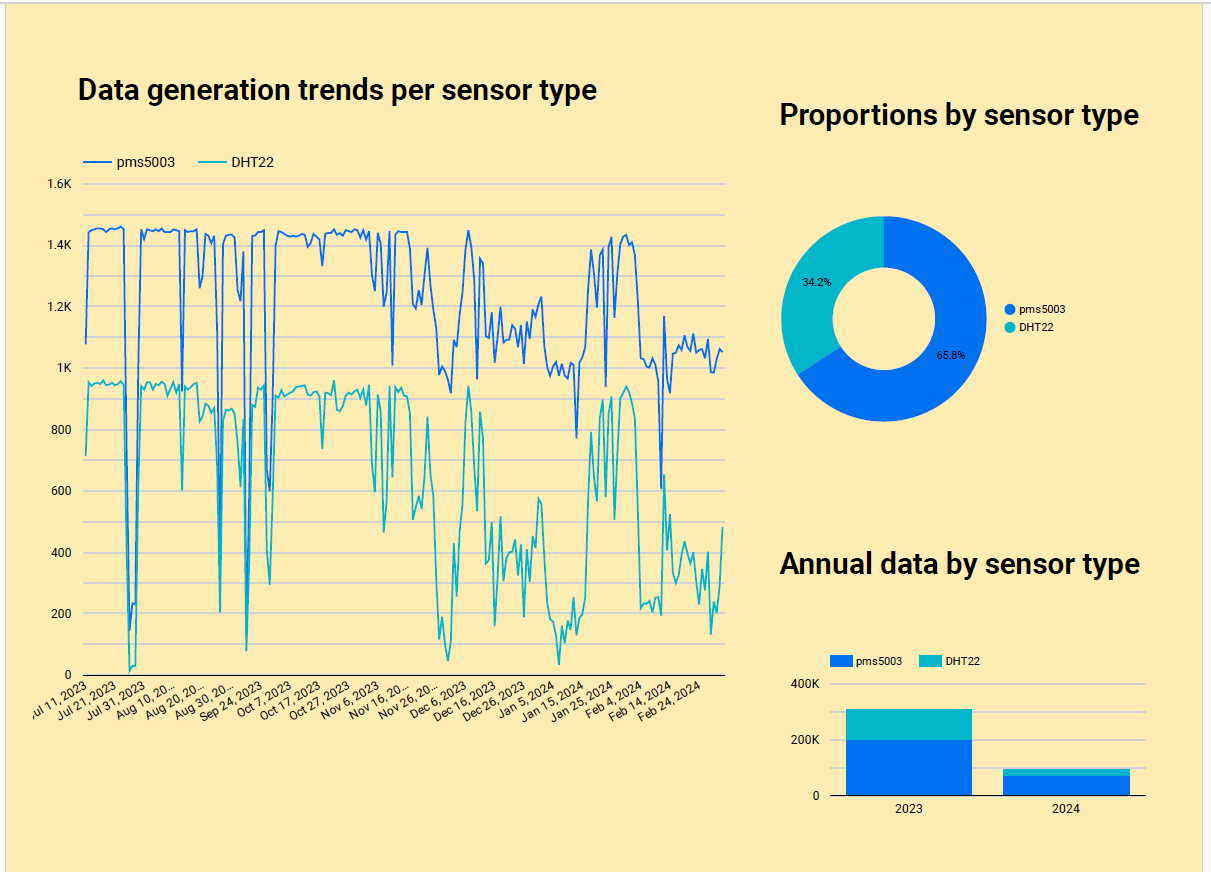High rate of urbanization, globalization and climate change is leading to decrease in air quality due to increased emissions from industries, motors and machinery, mining and pollutions. Air quality for a given locality can be determine by the concentration of Particulate Matter (PM) measured by air sensors.
Particulate Matter (PM), particles of variable but very small diameter, penetrate the respiratory system via inhalation, causing respiratory and cardiovascular diseases, reproductive and central nervous system dysfunctions, and cancer. On the other hand, nitrogen oxide, sulfur dioxide, Volatile Organic Compounds (VOCs), dioxins, and polycyclic aromatic hydrocarbons (PAHs) are all considered air pollutants that are harmful to humans. Carbon monoxide can even provoke direct poisoning when breathed in at high levels.
Understanding the concentration and distribution in levels and types of air quality across a geographical location provides basis for decision making for habitation and livelyhood; drawing policy interventions scenarios; and identifying data gaps. This project focused on the distribution of air quality across Nairobi County, Kenya.
This project utilizes the Sensors Africa data for Kenya provided by the Open Africa Data. This data set contains PM (particulate matter), temperature, and humidity readings taken with low-cost sensors. These sensors measure the concentration of PM in the air, including particles with diameters less than or equal to 1 micrometer (PM1), 2.5 micrometers (PM2.5), and particles with diameters less than or equal to 10 micrometers (PM10). The data set includes information on the sensor type, date, time, and location of the readings, as well as the sensor’s specific measurement values for Temperature (C), Humidity (%), PM1, PM2.5, and PM10.
The following tools and technologies are used:
- Cloud - Google Cloud Platform
- Data Ingestion, Orchestration and Transformations- Mage
- Data Lake - Google Cloud Storage
- Data Warehouse - BigQuery
- Data Visualization - Looker Studio
The downloading block downloads and ingest data (csv files). Enable monthly-download trigger for monthly batches.
Run the data_transformations block to generate some of the available data transformations.
Running the to-bigquery will upload the tranformed data into the biguery platform.
Click on the link below to access the dashboard:
https://lookerstudio.google.com/reporting/052d842e-b4b1-4c3c-8922-b67aa435bb0d
- Ensure you have venv installed in your system.
- Configure the Google cloud permissions if you have not already done so and download the key. You can refer to this guide if you do not already know how to do it..
# create and activate the virtual environment
python venv env
env\Scripts\activate
git clone [email protected]:lagvier/datatalks_project.git
cd datatalks_project
# install required libraries
pip install -r requirements.txt
-
Download the Google Cloud key , create CREDS folder within the root directory and put the key in it.
-
start mage with the command below then access it at http:https://localhost:6789/
mage start mage

